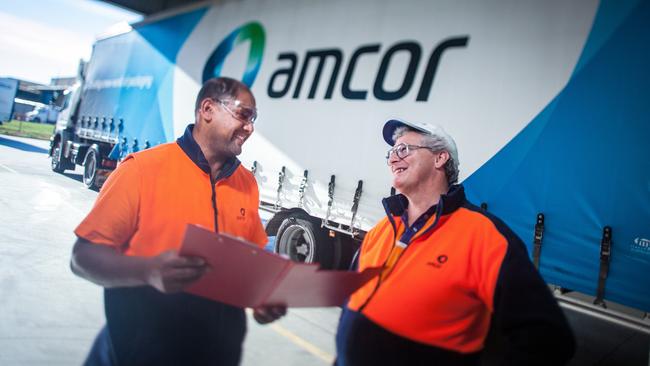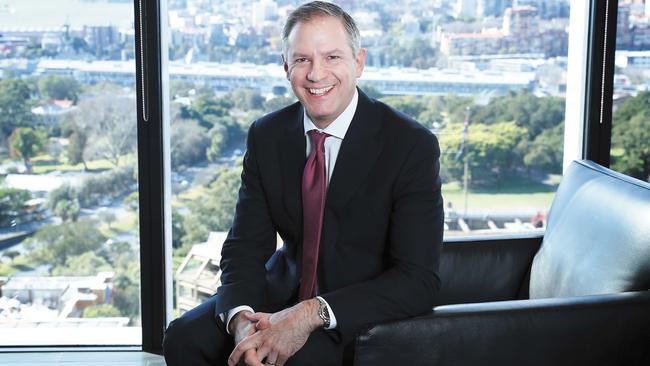Packaging giant Amcor passing on cost hikes but keeping watch on global inflation threat
Amcor’s CEO Ron Delia is watching the threat of global inflation but remains confident in underlying demand for its consumer packaging products.

Packaging giant Amcor remains wary of a global surge in inflation but expects its core business supplying consumer food and drink labels, lids and pouches will withstand any economic jitters as it continues to pass on cost hikes to its customers and amid expectations of resilient demand from households.
Consumer price inflation has soared in a number of major economies including the US, which finished 2021 at a 40-year high of 7 per cent, on “supply and demand imbalances” caused by Covid-19.
Amcor, which owns 230 packaging factories spanning more than 40 countries including a major presence in North America, said it was watching the issue closely across multiple markets.
“Inflation is real. And it’s broader than we’ve probably seen in quite some time, broader in the sense of multiple parts of the world experiencing higher inflation than have been experienced for the last several years at least,” Amcor chief executive Ron Delia said.
With raw material costs and shortages also starting to bite, Amcor slugged its customers with $US650m of price increases, which represented growth of 11 per cent.
Hikes in energy, transport and logistics costs all had to be juggled across its operations, the Amcor boss said.
“Our business is a conversion business where we are sourcing raw materials and adding value and converting those materials into finished packaging products. And we’ve seen pretty strong raw material inflation now for at least three quarters, across the board in all parts of the world,” Mr Delia said.
“And they’re also seeing two different degrees across inflation and energy costs and transport and logistics. But I think the positive from all that is we are demonstrating that we have purchasing power and the ability to pass through that inflation down the value chain.”

Broker MST Marquee said Amcor had done well in passing on costs to its customers.
“It is worth mentioning the magnitude of the absolute $-headwinds that are being passed through to customers – $US1.5bn on an annualised basis on what was a $US13bn revenue base in FY21. To be able to pass on these costs to a large extent is a good effort on Amcor’s part,” MST analyst Keith Chau said.
Asked if an expected rise in interest rates might pose further risks, Mr Delia said demand for its products will likely stay strong regardless.
“Because of our market exposure, which is really consumer staples and food and health care, we don’t expect a rising rate environment to crimp demand in any of our key end markets.”
Amcor retained its full-year earnings guidance for 2022 with earnings continuing to rise as the company delivered a 6 per cent rise in first half net profit across its global operations.
The dual listed group said it is on track to meet annual guidance of adjusted earnings per share growth of approximately 7 per cent to 11 per cent and lifted its share buyback target by $US200m ($280m) to $US600m.
Still, MST noted the market will likely gravitate to the bottom-end of the outlook range if raw material issues persist. Amcor shares fell 3.4 per cent to $16.38.
The company’s net profit rose 6 per cent to $US548m while net sales in the six-month period lifted 2 per cent to $US6.927bn.
Adjusted earnings before interest and tax was up 5 per cent to $US769m, just below consensus estimates, while it expects adjusted free cash flow of $US1.1bn-$US1.2bn for the 2022 financial year.
While it pointed to the issue of managing general inflation and the effect of supply chain disruptions in North America, strong household demand for food and drinks amid the ongoing Covid pandemic continues to bolster its business.
A quarterly dividend of $US0.12 cents per share will be paid. Australian CDO holders will receive an unfranked dividend of 16.85 cents per share.
The company, which traces its origins to establishing Victoria’s first paper mill on the banks of the Yarra River in the 1860s, spent $US6.8bn acquiring one of its main rival, Bemis, in 2018 to boost its global clout and is looking ahead at smaller deals after completing the purchase.
The Bemis buyout increased Amcor’s footprint from 30 countries to 40 and led to the company listing on the New York Stock Exchange.





To join the conversation, please log in. Don't have an account? Register
Join the conversation, you are commenting as Logout